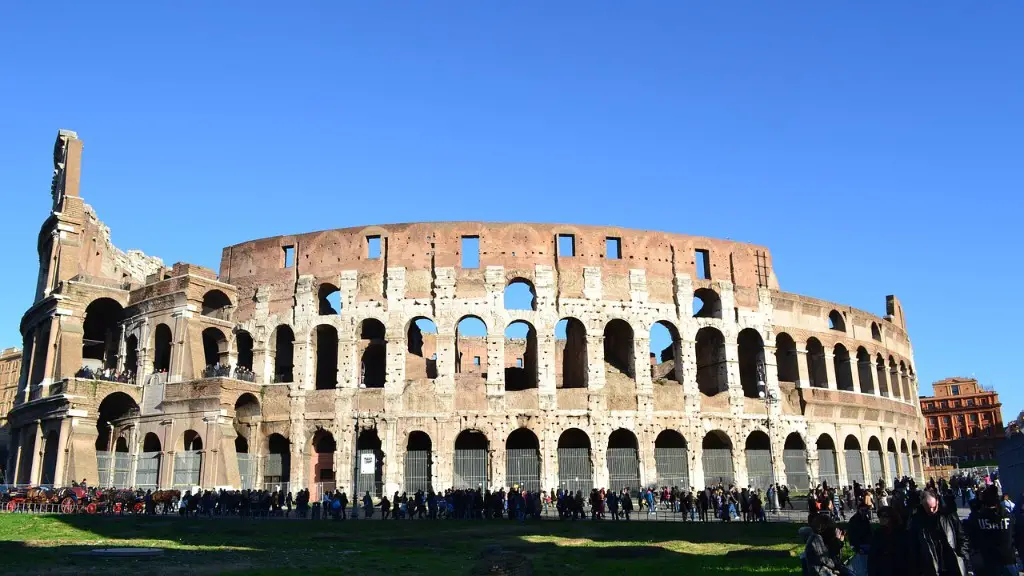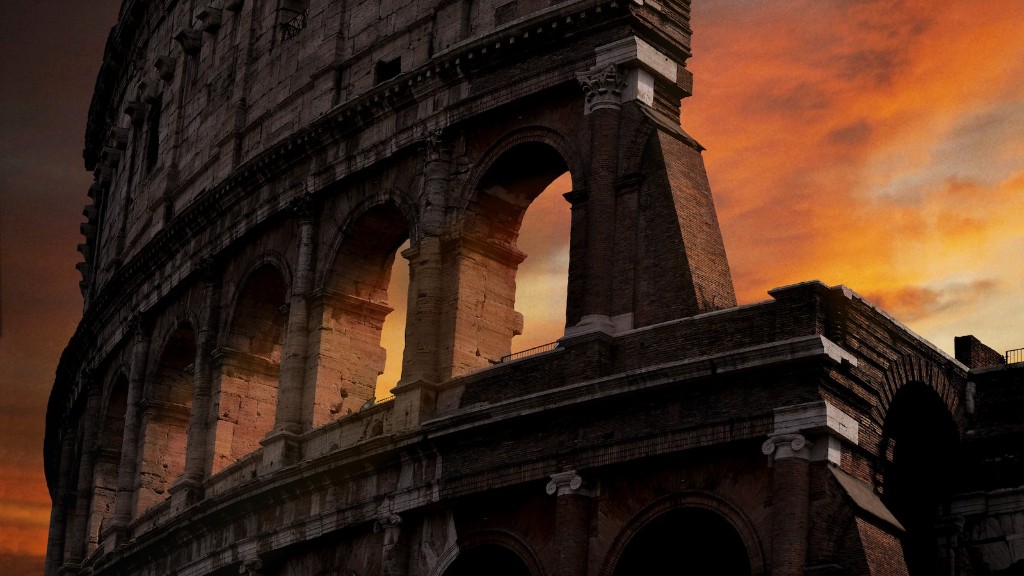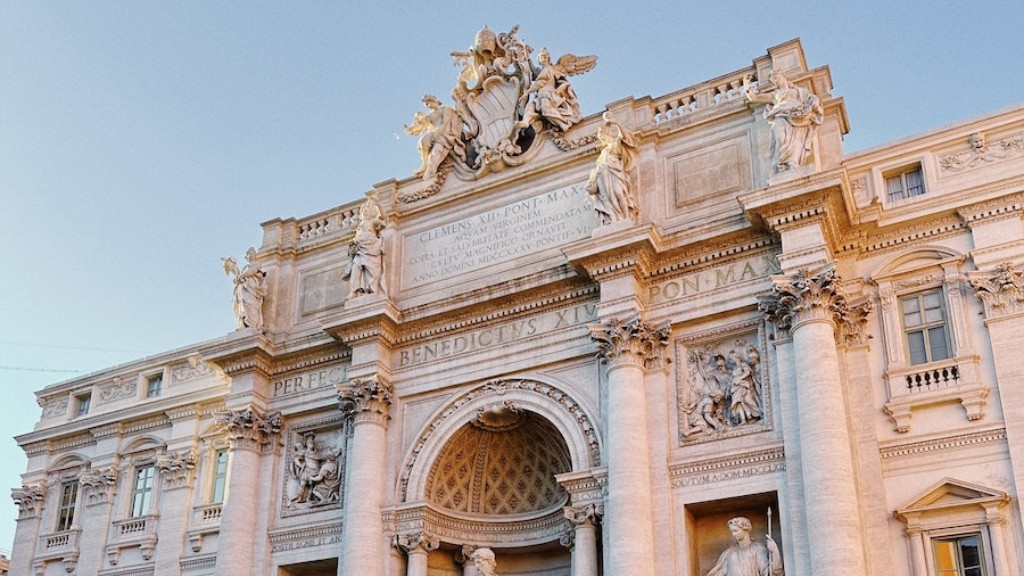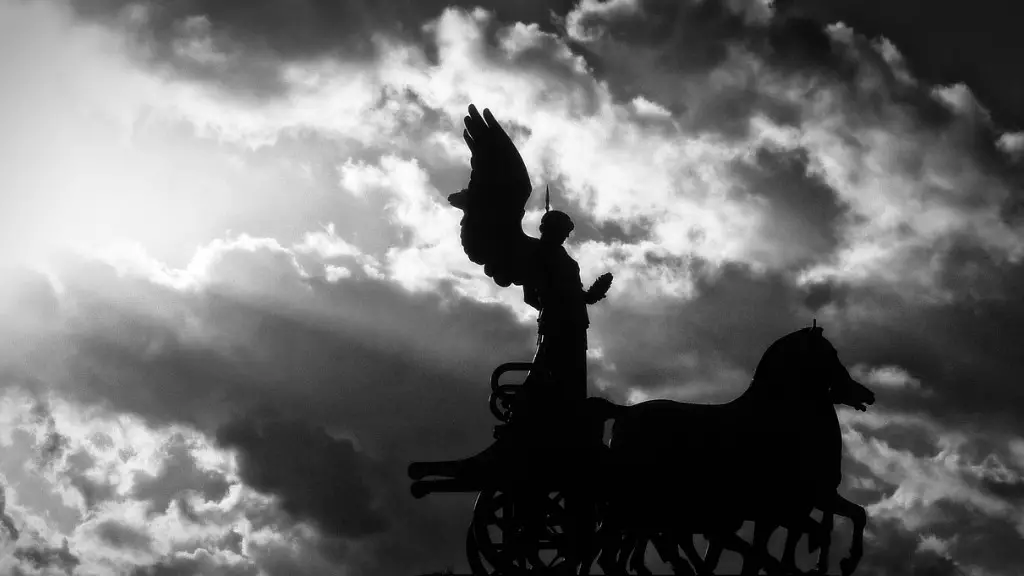The history of Ancient Rome is a grande narrative of greatness, power, and the exploits of individuals, who have earned renown and recognition alike. It’s these individuals, the Caesars who, through their actions and activity, drove the Roman Empire from a Republic to one of the most formidable Empires in history. But more than being just a monarchy, Ancient Rome was a society of complexity, a people who crafted strong and dependable government structures, invested heavily in public works and developed a rich, varied culture that includes aspects both practical and breathtakingly beautiful.
Rome was founded in 753 BCE and continued to expand for the next four centuries, even after the Republic was invaded by Julius Caesar in 49 BCE. By this time, the city was already a melting pot of different cultures, including those from the Etruscans, Greeks, and other Italian tribes who, over the centuries, had contributed to making Rome an extraordinary civilization. These different cultures further enriched Rome, as many aspects of their traditions and values were incorporated into the evolving Roman system; bringing with them innovative approaches to government, art and commerce.
Ancient Roman society boasted remarkable advances in engineering, architecture and technology. In the field of engineering, the Romans are famed for their construction, building grand Aqueducts and engineering feats like the Colosseum and the bridges, roads and monuments which still stand in many cities today. Their architects designed city layouts and buildings to be both orderly and aesthetically pleasing, each structure is a shrine to their vibrant culture and identity. Technological advancements were also incredibly impressive, such as hydraulic road construction, formation of concrete for strong and lasting structures, as well as inventions, such as water powered saws, grinders and other tools.
Rome was also an advanced society in terms of social policies and politics. The Romans developed an influential legal system and many of these laws remain in place today, inspiring governments from all over the world. Furthermore, many of the concepts and practices, such as representative democracy, were drawn from their system. They also created a sophisticated system of taxation and governance, which enabled them to establish a powerful centralized state.
Ancient Rome also boasted a fascinating religious and spiritual culture. Its many religions included the path of Mithraism, a mystery religion which focused upon the sun-god Mithras, and of course, the well known polytheistic religion of the Romans. Religion played a huge part in day-to-day life and while some citizens followed their faith fervently, others enjoyed their spiritual life in moderation or perhaps merely embraced the traditions and customs which were integral to the life of a Roman.
No account of life in Ancient Rome would be complete without mentioning the passions of its inhabitants. They were great lovers of wine, food, and more importantly – entertainment. The Romans were great patrons of theatre, chariot-races, and the infamous Gladiator games. The adrenaline rush of watching such spectacles kept them enthralled, and it is the very essence of the Roman people that still draws people in today.
Rome’s Language
One of the most remarkable features of Ancient Rome was its mastery of language. Latin was not just the language of the majority of its citizens, but it formed the basis of all communication in the empire. Latin would later become one of the most significant languages of the west, with its influence still being felt in some of the world’s most prominent languages today.
In terms of literature, the Romans wrote extensively in Latin, with some of their works becoming seminal texts on politics, patriotism, war, and history. This legacy was also enjoyed in the arts. Music, dance, poetry, painting, and sculpture, were all flavors of creativity that were enjoyed by the Romans and explored with great enthusiasm.
Culture and Commerce
Rome was a bustling commercial center, a place where artisans crafted goods, traders sold exotic items from other lands, and merchants owned vast vineyards. But beyond its wide-reaching trade network, Rome also enjoyed a vibrant culture. The Romans had a great respect for education, whether it be training in philosophy, rhetoric, or law. Elites went to great lengths to tutor and mentor ambitious students, while humble citizens found joy in the regular spectacles, such as Coliseum fights and chariot races, which brought astounding drama and excitement.
The Roman culture was also unique in that it did not fear death. Expected to be ready to die for their republic, many Roman citizens embraced their mortality and honoured the gods in their various festivals. This reverence for death made the Romans unafraid to live life to its fullest and today, still resonates with us today.
Rome’s Legacy
Any discussion of Ancient Rome should also include mention of its incredible legacy. The Roman Empire was an incredibly powerful entity that spread out and beyond Europe, leaving an indelible influence on the way that we live and think today. Its influence on art, language and culture has become so far-reaching that its effects can still be seen in many institutions around the world. Its inspiration has given us the monuments, laws and government structures and practices, which have been the foundation of modern states and cultures alike.
The implacable mark of Rome can also be seen in its most enduring legacy: the Catholic Church. Rome was the birthplace of Christianity and the power of the Catholic Church has shaped the way that people think and act across the world. Many aspects of the Church, from its beliefs and customs to its hierarchy, was shaped and molded from the Roman way of life, and continues to haunt us today in the rituals and rites of religion.
Romans and their Society
The Ancient Romans were an ambitious and passionate people. They believed in the power of friendship and cooperation, as well as honouring the gods and legends that drove their society. They undeniably formed a very successful and lasting society, with countless aspects still influencing the way that we think and behave today. Ancient Rome remains the most famous society to date, and its many kings, generals and citizens deserve admiration, recognition, and discussion for the extraordinary effort they put into shaping a great, and unforgettably powerful, ancient empire.
Economy and Slavery
Rome’s economy was fuelled heavily by slavery, and it was a practice that played a major role in all aspects of Roman life. Slaves, who were mostly acquired through war and conquest, were owned and abused by their Roman masters and were treated, more often than not, in a very inhumane fashion. Despite this, the economy of Ancient Rome was incredibly complex and utilized a variety of different sources of labor and resources, including slaves, to facilitate their extensive and powerful trading network.
The End of the Roman Empire
The fall of the Roman Empire is often attributed to the third-century Crisis, a period of political and military unrest when multiple outside forces invaded the republic and attempted to conquer it. While these invasions greatly contributed to Rome’s collapse, it was the endemic problems of a centralized government that finally drove it to its end. Revolt, scandal, corruption and civil wars all combined to bring an end to Roman rule, thus marking the fall of one of the most powerful civilizations in history.
Rome’s Impact Today
The impact of Ancient Rome can still be felt today. From its engineering feats and legal foundations, to the fascinating stories of its leaders and citizens, Rome is a source of inspiration and awe around the world. Its legacy remains alive today, with many of its monuments, places of worship, and customs still in place. In fact, it is not difficult to find traces of Rome’s lasting impact on traditions, government, art and more. Ancient Rome is truly a society to be remembered, admired, and celebrated.



